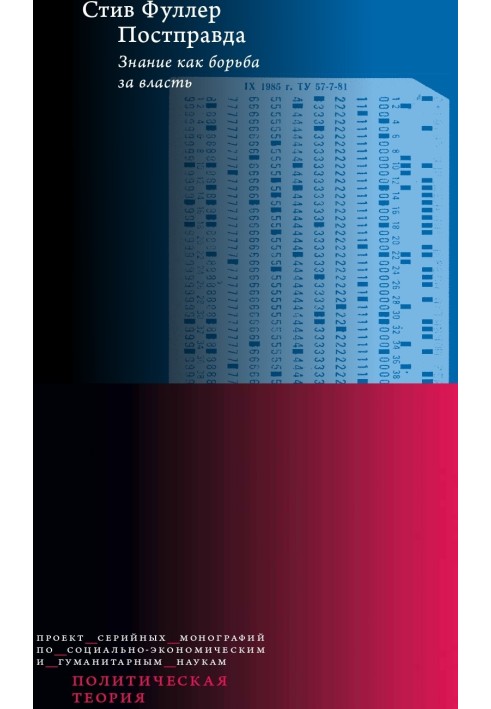Post-truth: Knowledge as a struggle for power
 Instant download
Instant download
after payment (24/7)
 Wide range of formats
Wide range of formats
(for all gadgets)
 Full book
Full book
(including for Apple and Android)
Although the term "post-truth" was coined by critics who were impressed by Brexit and the US presidential campaign, post-truth, or post-truth, is rooted in the very history of Western social and political theory. Steve Fuller returns to Plato, examines a number of problems in theology and philosophy, and pays special attention to the Machiavellian tradition of classical sociology. The key figure is Vilfredo Pareto, who proposed the original concept of post-truth within the framework of his theory of the circulation of two types of elites - lions and foxes, according to which lions and foxes compete for power and accuse each other of illegitimacy, referring to the falsity of the opponent's statements - or that they {lions) did, or what they {foxes) will do. The defining feature of post-truth is the strict distinction between appearance and reality, which is never completely eliminated, and therefore the strongest appearance passes itself off as reality. The question is how to achieve greater gains - through rapid changes in visibility (the position of the foxes) or by stabilizing it (the position of the lions). The author examines from different angles what all this means for politics and science. The book is addressed to specialists in the field of political science, sociology and modern philosophy.
Data sheet
- Name of the Author
- Стив Фуллер
- Language
- Russian
- Translator
- Дмитрий Юрьевич Кралечкин












